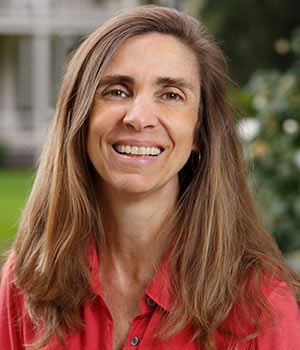The complexities faced by our region’s healthcare providers have been multiplied during the coronavirus pandemic. And Northwest foundations have been quick to respond to the identified challenges, providing flexible capital to meet the sudden growth in the need for better protective gear, testing capacity and telehealth technology. Grantmakers have streamlined application processes, shortened timelines and reduced reporting requirements to help healthcare providers struggling to do their job with the additional challenges coronavirus brings.

But even in less extreme times, foundations are strong partners for healthcare providers and can support innovations that can fundamentally change how patients are served in their communities. Westby Associates, Inc. has worked with healthcare providers throughout the region of all sizes to make the connection between philanthropic priorities and the unique needs of patient populations.
Often nonprofit health clinics first undertake fundraising when they need to replace outdated or undersized facilities. Capital campaigns typically require a three-legged stool approach to securing the required funding above and beyond what operational revenues can yield. Public funding is an important leg of the stool that is strengthened through relationships with state and local legislators. Community leadership philanthropy is also essential and involves outreach and creative, engaging events that speak to the unique community. Foundations are the third leg of the stool, and capital grant requests ideally leverage giving at the individual and government levels.
Equipment upgrades are another area where foundations can be a key player. In working with hospitals on an equipment campaign, a challenge can be aligning the timeline of medical directors and hospital leadership that wants to see equipment replaced as soon as possible, with the realities of foundation processes that can take six to 12 months and may require a site visit. But the investment of time can really pay off, particularly when technological advancements have the potential to greatly improve health outcomes.
Beyond equipment and capital campaigns, foundations can be involved in seeding innovative approaches to meeting healthcare needs that are a bit outside the box. For more than a decade, Westby Associates, Inc. has worked with Mid-Columbia Health Foundation in its work supporting Mid-Columbia Medical Center (MCMC), an independent community hospital in The Dalles, Ore. In 2011, to address the fact that the Latina population in the area was not accessing screening mammograms, the Health Foundation created the Breast Health for Strong Families program to provide targeted outreach to help Latina women overcome barriers that included: financial, language, education, and geographic isolation.
Support for the staffing and outreach needs of the new mammogram program came from other regional and national foundations including Susan G. Komen, OHSU Knight Cancer Institute and the M.J. Murdock Trust. In addition, local donors helped seed a Breast Health for Strong Families Fund that is managed by the Mid-Columbia Health Foundation.
Transportation support and vouchers for free mammograms were a big help. But what really moved the needle was having native Spanish-speaking, bi-cultural outreach workers building relationships and providing education in the community. In the first three years, the program resulted in more than 280 subsidized mammograms and five positive cancer diagnoses. When breast cancer is diagnosed early, there is a high success rate with treatment. Every year, lives in the Mid-Columbia region are saved by the Breast Health for Strong Families program.
Beyond the intended impact on Latina women, the targeted outreach program has also changed how MCMC conducts preventative healthcare for men, women and children in their communities. Specifically, the success of Breast Health for Strong Families demonstrated for hospital leadership and the local Coordinated Care Organization (CCO) the effectiveness of personalized, bilingual outreach to underserved members of the community. With foundation support, the value of the community health worker model was demonstrated, and that has fundamentally changed how MCMC conducts outreach to promote preventative care.
Now, with CCO support and recognition of the cost savings of preventative care, there are five bi-lingual, bi-cultural community health workers at MCMC serving underserved populations, particularly Latinos, providing robust referrals and assistance accessing upstream services to address basic needs like housing and food security, as well as preventative healthcare. When the pandemic hit, and migrant farmworkers were identified as a high-risk population, MCMC had staff that was able to respond quickly with targeted outreach and referrals for people working on the cherry harvest, and there were responsive grant funds available for this timely work.
Finding a match between foundation priorities and healthcare needs takes a bit of extra work and advance planning, but the partnerships can be very fruitful. There is significant philanthropic interest in community health and foundations recognize that healthcare providers are best positioned to identify the unique needs in their communities.
Ingrid Dankmeyer is an associate and grant specialist with Westby Associates, Inc. She can be reached at ingrid@westbyassociates.com.




